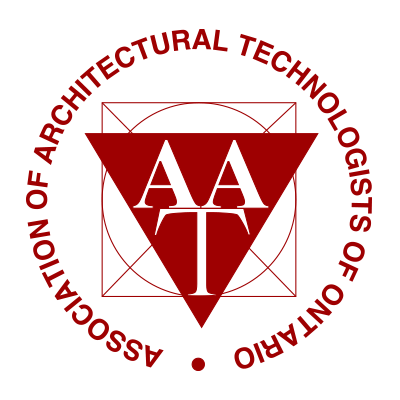Making a complaint
The Association of Architectural Technologists of Ontario
The Association of Architectural Technologists of Ontario (AATO) is authorized under the Association of Architectural Technologists of Ontario Act, 1996 to permit registered members to use the title “Architectural Technologist”, “Registered Building Technologist”, “Architectural Technician” and “Registered Building Technician”. AATO protects members of the Association, and the public who deal with registered members of the AATO by investigating complaints against members and disciplining members who breach the AATO’s Act, By-Laws, Code of Ethics, Rules of Professional Conduct and/or Standards of Practice. The AATO is not responsible for individuals practicing building technology who are not members of the AATO.
General
This form is to be used to file complaints regarding the professional conduct of an AATO member who may have violated the AATO’s Act, By-Laws, Code of Ethics, Rules of Professional Conduct and/or Standards of Practice. If you are uncertain whether someone is a member of the AATO, you can check with the AATO Head Office. If your complaint falls outside of AATO’s jurisdiction and authority, or does not relate to a breach of the AATO’s Act, By-Laws, Code of Ethics, Rules of Professional Conduct and/or Standards of Practice, we will let you know and we may suggest alternatives to address your concerns.
Confidentiality of Your Complaint
AATO cannot guarantee that the information you provide, or the information we obtain from other parties during the course of our investigation, will remain confidential. We are obligated under the By-Laws of the Association to provide a copy of the signed Complaint Form and associated materials to the named member if the Complaints Committee believes the complaint has prima facia merit and the Committee is considering whether to refer the matter to the Discipline Committee or writing a letter to the member providing advice regarding the complaint. We also have to provide the member with some or all of the other information obtained during the complaint investigation.
Filing a Formal Complaint
Complaints Process
Upon receipt of a complete complaint, the Registrar will send a copy to the Complaints Committee to consider and investigate. If the Complaints Committee determines that the complaint is without merit and the member has not breached the AATO Act, By-Laws, Code of Ethics, Rules of Professional Conduct, or Standards of Practice, the Complaints Committee may dismiss the complaint. If the Complaints Committee considers the complaint to have merit, the member whose conduct is complained of will be notified by being provided with a copy of the complaint. The member must respond to the complaint in writing within 30 days. The Complaints Committee will examine, or make every reasonable effort to examine, all the information and the documents that the AATO has that are relevant to the complaint and the response provided by the member. The Complaints Committee is made up of registered members together with a member of the Association Council. If the Complaints Committee determines the complaint is valid but relates to simple infractions, it may forward directions to the Registrar to issue a letter to provide advice to the member complained against in writing. If the Complaints Committee determines the complaint warrants more serious attention, it may forward the matter to a Discipline Committee for further action and/or investigation.
If the matter is referred to a Discipline Committee, the Complaints Committee will present the complaint to this Discipline Committee. Discipline Committees are made up of registered members in good standing, who may discipline the member by, for example, revoking or suspending the membership of the member in AATO, or taking other action as specified in the AATO By-laws and Rules of the Complaints and Discipline Committee Proceedings. The AATO does not have the authority to award financial compensation or to award legal or other costs. The member, who has been complained against, may be represented by an agent or lawyer. The complainant may participate in the discipline process by giving evidence about the facts which led to the complaint.
Time Limitations
While there is no time limit, depending on the complexity of issues raised by the complaint, the Complaints Committee will generally endeavour to complete its investigation within a four-month period. Discipline proceedings may take six or more months to complete and can be appealed following a decision.
